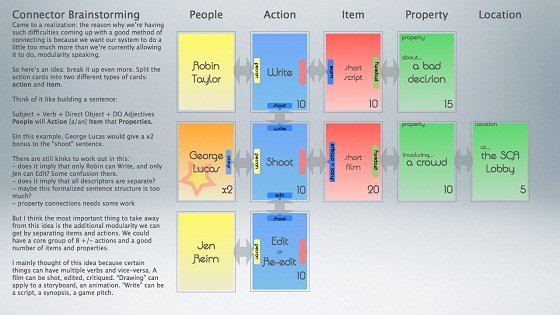
Gaming Culture Knowledge and an ARG at USC
The first article I read was a blog post on dmlcentral.net by Julian Sefton-Green titled “Making Sense of Games, Gaming Culture Knowledge”. The article was full of great quotes, and I’ve included some of my favorites below. Sefton-Green talks about her interviews with many young gamers and reflects on the identity work of how these “young people talk about formative experiences of playing computer games and of being gamers and the role of such “expertise” in their career choices”. Sefton-Green made several points about gaming and digital culture that really resonated with me. One such observation the author laid out was that the gamers’ “level of engagement and knowledge about gaming and other forms of popular digital culture…was ignored or marginalised by teachers and other adults in these young people’s lives”. An example Sefton-Green gives of this is how an interviewee’s art teacher was unaware that one could study game design at universities and only knew about the traditional route into art schools. Adults and educators were mostly oblivious to the unique and specialized knowledge these student-gamers possessed. “…the refrain was that for all the young persons’ expertise, it seemed significantly isolated from world views of their formal education. In other words, very few other adults who might have some influence on helping these people choose career paths really valued or knew anything about the kind of study or knowledge that these young people had put into these cultural forms. Finally, Sefton-Green points out that because the knowledge of gamers is marginalized by their teachers and adults in their lives, it makes the secrets of what they know have added value. As a future educator, I “…need to recognise and explore both the nature of and the ways that these kinds of informal knowledge domains are built outside of the curriculum”, according to Sefton-Green.
Here’s the link to the article if you are interested in reading it yourself! http://dmlcentral.net/blog/julian-sefton-green/making-sense-games-gaming-culture-knowledge
Another equally interesting article I read through was about an alternative reality game played by freshman film students at USC. The game called Reality is part card game, part web portal and part media creation tool. The developers wanted first year students to join the game out of their own curiosity and desire. The game’s membership grew by word of mouth. Rewards for doing well in the game included opportunities to meet major players in the film industry and land desirable internships. The article talked about how students would typically work in small groups of 2-3 to accomplish tasks and create visual media based on the players cards, which would dictate guidelines for a project. One larger group of students of about 10, Marra, topped the scoreboard for five weeks in a row. That’s when an even larger collective, the Tribe, won the next five weeks with an even larger team of students pooling their efforts. The two groups even came together for a unified mega project at the end. One student, after a semester of playing Reality, was glad for the opportunity to do something totally new. “I think the game was brilliant because it created an incredible space for experimentation and growth. It was brilliant because you felt safe because you can try things that were outside of your comfort zone, but you didn’t have to worry about a grade accompanied with it.” From the Reality operation (the making of an ARG and the students playing through it), I learned that collaboration is a huge part of the learning process, for the teams with more students accomplished much more than smaller groups. Ideas and resources were brought together for a common goal for a great impact on the game.
Here’s the link to the article if you’re interested in reading it yourself (and the link to Reality):

 Website:
Website: